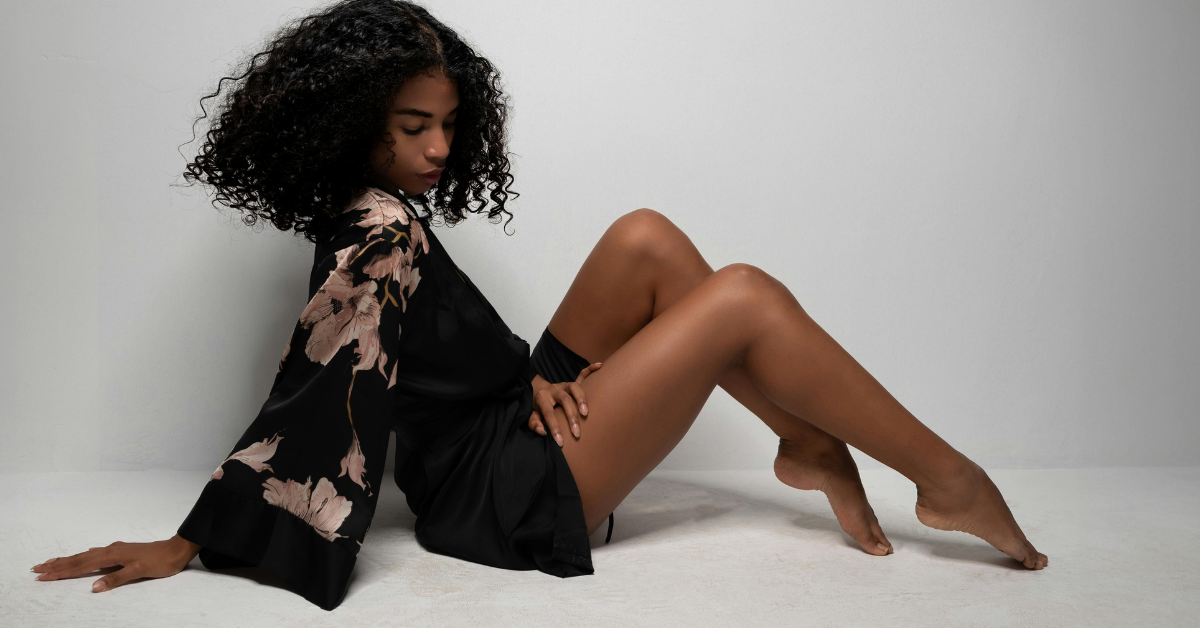Accounting and Tax
Are Uniforms Tax Deductible for OnlyFans Creators?
If you’ve ever asked, “Are uniforms tax deductible?” while looking at your haul of lingerie, costumes, or custom outfits, you’re not alone. This is one of the most common questions OnlyFans creators ask during tax season, and for good reason. Clothing is one of the biggest recurring costs in the business, but it also happens to be one of the most misunderstood.
Here’s the simple version: Yes, some of your outfits can count as business expenses. But there’s a difference between what you wear and what you can legally deduct. So let’s get into how this works for your OnlyFans account, what the IRS actually looks for, and how to make sure your tax return stays clean.

What Counts as a “Uniform” for OnlyFans Creators?
The IRS doesn’t call them uniforms. That’s our term. On their side, these are referred to as work clothes, and to deduct the cost, the clothing must meet two criteria:
- It’s required for your job
- It’s not suitable for everyday wear
That last part matters most. If something could be worn outside your content, even if you don’t wear it out, it likely doesn’t qualify. So you can’t write off a bodysuit from Zara just because it appeared in a shoot.
Here’s where the IRS draws the line: If the outfit could reasonably be worn on the street, it’s not tax deductible.
Real-World Examples for Content Creators
Here are examples that might help you understand the line between deductible and non-deductible:
| Clothing Item | Deductible? | Why |
|---|---|---|
| Custom latex catsuit | Yes | Business use only, not for personal wear |
| Branded crop top with your URL | Yes | Directly promotes your OnlyFans income |
| Basic sports bra | No | Considered everyday wear |
| Nurse cosplay costume | Yes | Niche content purpose, not streetwear |
| Regular jeans or a casual jacket | No | Not a work uniform |
| Foot-specific props (socks, heels) | Yes | Used for niche work, not personal |
If you specialize in a niche, fetish content, cosplay, or fantasy roleplay, you probably own a few outfits that you don’t wear outside the house. Those are your work tools. You can write off their cost if they are used only in your business.
Clothing vs. Business Expense: What the IRS Needs
A lot of content creators assume that because they spend money to make content, everything counts as a business expense. That’s not how it works.
The IRS treats clothing as a personal item by default. To count them as business expenses, you need to clearly prove they’re used only for work. That means:
- The clothing must have a clear connection to your job
- It must be exclusive to your OnlyFans account
- It must not be worn personally or casually
The IRS considers this issue similar to unreimbursed employee expenses in other fields. And since you’re self employed, the responsibility to prove a valid deduction falls on you.
Document Your Clothing Purchases Like a Business Owner
The best way to stay compliant and confident during tax season is to keep good records. This doesn’t mean you need complicated software or receipts taped to your ceiling. A basic folder system or a Google Sheet can be enough.
Here’s what to track:
- Receipts: Keep a copy, photo, or email of your receipt
- Cost: Note how much you spent and when
- Business use: Link to a photo set, video, or content folder showing how you used it
- Storage: Keep uniforms in a separate drawer or rack away from personal items
- Notes: Write a line or two on what niche or shoot it supports
If you ever get audited, you’ll be able to show exactly why that latex skirt or oversized wig is a legitimate part of your business.
Where to Report Clothing Expenses on Your Tax Forms
As a self employed content creator, you’ll file using Schedule C, which is the IRS form for reporting business income and expenses.
There’s no special line that says “clothing,” but you can add these purchases under Other Expenses and label it clearly, like:
- “Work-use clothing for content shoots”
- “Uniforms and costumes used in branded content”
- “Wigs and roleplay outfits used exclusively for OnlyFans”
This reduces your gross income, which lowers your adjusted gross income, your taxable income, and how much you owe in both income tax and self-employment taxes.
And yes, this matters for estimated tax payments, too. Every quarter, you can reduce your payments by reporting expenses like clothing that directly support your business.
What Doesn’t Count? Mixed-Use Items
Let’s say you buy a bodysuit, wear it in a shoot, then wear it again to a party. That item no longer qualifies as a business-only uniform.
Here’s why: once something becomes personal, it no longer meets the IRS standard for business use.
You also can’t deduct the cost of:
- Clothing that doubles as personal style
- Outfits you promote on Instagram or TikTok without paywall content
- Jewelry, watches, or fashion-forward pieces that aren’t content-exclusive
These fall into miscellaneous itemized deductions, and most self employed creators can’t claim those.
How to Separate Clothing Used for Business
You’re running a small business, and that means you need systems. Even if you’re just starting to treat your content more seriously, here are a few easy ways to organize:
- Label a clothing rack “OnlyFans Use” and don’t mix anything else in
- Use color-coded folders or a Trello board to track expenses
- Create a private Google Drive for screenshots and outfit photos
- Record your income and expenses each month so you don’t guess later
This kind of separation helps with tax compliance, protects you in case of an audit, and shows that you’re acting like a real business owner.
What About Cleaning, Repairs, and Replacement?
If an outfit is strictly for content and needs dry cleaning, those costs are also tax deductible. If a costume rips and you fix it with a tailor, that repair cost can also be written off. This extends to:
- Tailoring fees
- Alterations to fit your brand or shoot style
- Professional cleaning or maintenance costs
The IRS sees this as part of the item’s useful life, the period you use it for work. Just make sure to label your expense clearly and tie it to the original outfit.
Avoid These Common Tax Issues
Even creators with the best intentions can make mistakes. Here are some of the most common tax issues OnlyFans creators face regarding clothing:
- Deducting everyday wear like jeans, sneakers, or fashion basics
- Using vague labels like “clothes” on your Schedule C
- Claiming large wardrobe expenses without proof of income
- Writing off personal shopping sprees as tax write-offs
- Skipping estimated tax payments and falling behind
If you’re making OnlyFans income, you need to treat it like self employment income. That means being intentional about what you deduct, how you track it, and when you pay taxes.

What If the IRS Audits You?
Let’s be honest: audits happen. And yes, clothing deductions can raise eyebrows if they seem too high or inconsistent with your net income.
Here’s how to protect yourself:
- Keep copies of all tax forms
- Organize receipts for the current and past tax year
- Label every item in your records with a business use description
- Have screenshots of content that shows how the clothing was used
- Work with a tax professional who knows content creation
Don’t wait until a tax issue comes up. The best time to get organized is before you need to explain anything.
FAQs
Are uniforms tax deductible for OnlyFans creators if I use them in every video?
Yes, if the outfits are only used for your content and never worn personally. Keep documentation showing how often and where the clothing is used.
Do I need an LLC or C Corp to deduct the cost of clothing?
No. You can be self employed and claim clothing as a business expense without forming an LLC or C Corp. Just make sure your deductions are tied to your job and backed by proof.
Can I deduct outfits if I sometimes wear them off-camera?
No. If the item is not 100 percent business-use, it’s considered a personal item and cannot be deducted.
Is it better to include these deductions under “miscellaneous deductions”?
Not for self employed creators. Use Schedule C and categorize clothing as “Other Expenses” tied to content creation.
Conclusion
Clothing deductions can help reduce the amount you pay in taxes, but only when you use those outfits exclusively for your content. The more you treat your OnlyFans account like a business, the easier it becomes to track expenses, file your electronic filing confidently, and keep more of your money.
At The OnlyFans Accountant, we specialize in helping OnlyFans creators maximize their deductions and optimize their tax strategies. If you’re ready to ensure your clothing expenses are properly documented and minimize your tax liability, we’re here to help. Contact us today for a free consultation, and let’s craft a tax plan that keeps more of your income in your pocket while staying compliant with IRS regulations.
